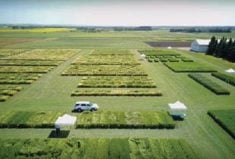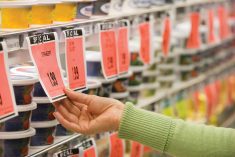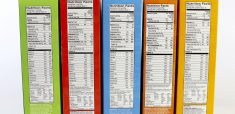Public trust is eroding in Canada, and farmers — along with others in the value chain — need to fight back, says the head of a new ag organization aimed at winning back confused consumers.
“The whole industry needs to know a whole bunch more about consumers,” said Kim McConnell, an Okotoks-based marketing expert and new chair of the The Centre for Food Integrity.
“That’s what the primary focus of The Centre for Food Integrity is.”
The centre, based in Guelph, Ont., is holding its first “public trust summit” in Calgary from Sept. 18-20. The conference is designed to show members of the agricultural industry how to earn the trust of consumers.
Read Also

Farming Smarter receives financial boost from Alberta government for potato research
Farming Smarter near Lethbridge got a boost to its research equipment, thanks to the Alberta government’s increase in funding for research associations.
“People are very interested in knowing where their food comes from and how their food is produced,” said McConnell, who founded the advertising agency AdFarm.
But many continue to turn to highly biased sources, he said.
“They have questions and when you don’t have the information or when others are providing information, that might be focused on a specific agenda. Then there is a degree of confusion.”
Some are all-out attacks on agriculture, such as a documentary called ‘What the Health,’ which was recently added to Netflix. The video contends that meat and dairy products cause disease — and that industry, government, pharmaceutical, and health organizations have conspired to keep the public in the dark. Its producers raised more than US$270,000 in a crowdfunding campaign to make the documentary. They had earlier made ‘Cowspiracy,’ which blames livestock production for global warming.
The fact that there’s an audience for these sorts of attacks on how food is produced shows there is not always the level of trust in agriculture that the industry wants, said McConnell.
That’s why it’s important to have a gathering like the Public Trust Summit, he added. Among the speakers is Charlie Arnott, CEO of the U.S. version of The Center for Food Integrity, who will speak about why “transparency is no longer optional.” Other speakers will talk about engaging millennials and collaborating with environmental groups.
Of special interest to producers is a ‘Let’s meet some millennials’ consumer panel, said McConnell.
“Basically, we’re sitting in on a focus group, and it’s a whole industry doing that,” he said. “It’s a good opportunity to learn.”
The centre will also be unveiling its latest research on consumer attitudes. The event is expected to attract a couple of hundred attendees representing organizations and companies from across the Canadian food chain.
The Canadian Centre for Food Integrity — which grew out of an organization called Farm & Food Care (which operated in Ontario and Saskatchewan) — does not lobby or advocate for individual companies or brands, but is intended to be an avenue so people can learn from each other, said McConnell.
“The key thing that we’re doing is an annual market research survey. And we will host webinars, and seminars to be able to share that information with the entire industry and then be able to provide training and support services that would help components of the industry to be able to develop their plans.”
For more information, see www.foodintegrity.ca.
















